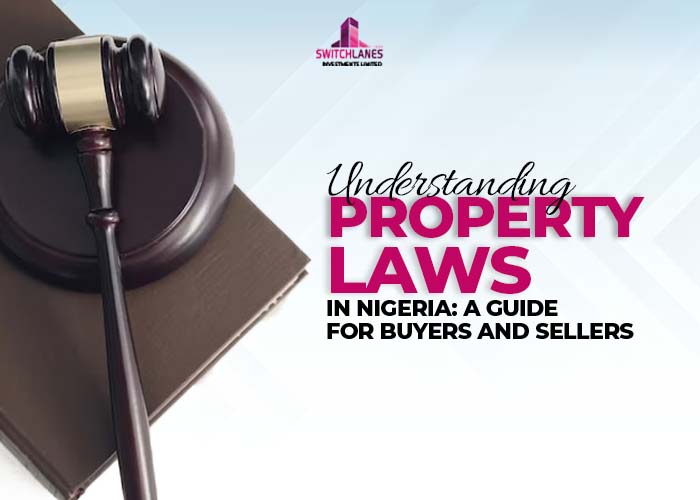Buying or selling property in Nigeria can be a complex process, and it’s important to understand the legal framework that governs these transactions. In this guide, we’ll provide an overview of property laws in Nigeria, including the types of property ownership, the legal requirements for buying and selling property, and the rights and responsibilities of buyers and sellers.
Types of Property Ownership in Nigeria:
In Nigeria, there are two main types of property ownership: freehold and leasehold. Freehold ownership gives the owner full ownership rights over the property, including the right to sell, lease, or transfer the property to another person. Leasehold ownership, on the other hand, gives the owner the right to use the property for a specific period of time but does not give them full ownership rights.
Legal Requirements for Buying and Selling Property in Nigeria:
When buying or selling property in Nigeria, there are several legal requirements that must be met. These include:
- Obtaining a Certificate of Occupancy (C of O): A C of O is a legal document that proves ownership of a property. It is issued by the state government and is required for all land transactions in Nigeria.
- Conducting a property search: Before buying a property, it’s important to conduct a property search to ensure that the property is free from any encumbrances or legal disputes.
- Drafting a sales agreement: A sales agreement is a legal document that outlines the terms and conditions of the property sale. It should include details such as the purchase price, payment terms, and any contingencies.
- Registering the property: Once the sale is complete, the property must be registered with the appropriate government agency to transfer ownership.
Rights and Responsibilities of Buyers and Sellers:
Buyers and sellers of property in Nigeria have certain rights and responsibilities that must be upheld. These include:
- Right to ownership: The buyer has the right to full ownership of the property once the sale is complete, provided that all legal requirements have been met.
- Right to disclosure: The seller has a responsibility to disclose any known defects or issues with the property to the buyer.
- Right to inspection: The buyer has the right to inspect the property before completing the sale to ensure that it is in good condition.
- Responsibility to pay taxes: Both the buyer and seller are responsible for paying any applicable taxes related to the property sale.
- Responsibility to uphold the terms of the sales agreement: Both the buyer and seller are responsible for upholding the terms of the sales agreement, including payment terms and any contingencies.
Conclusion: Property Laws In Nigeria
Understanding property laws in Nigeria is essential for anyone looking to buy or sell property in the country. By familiarizing yourself with the legal requirements and rights and responsibilities of buyers and sellers, you can ensure a smooth and successful transaction. If you have any questions or concerns about property laws in Nigeria, it’s important to consult with a qualified legal professional who can provide guidance and advice.
Navigating the property laws in Nigeria is crucial for buyers and sellers to ensure a smooth and legally sound transaction. By understanding the types of property ownership, legal requirements, and rights and responsibilities of both parties, individuals can protect their interests and make informed decisions.
It is important for buyers to obtain a Certificate of Occupancy (C of O) to establish legal ownership of the property. Conducting a thorough property search is essential to identify any encumbrances or disputes that may affect the transaction. Drafting a comprehensive sales agreement that outlines the terms and conditions of the sale is crucial for both parties.
Buyers have the right to full ownership of the property upon completion of the sale, provided all legal requirements are met. They also have the right to disclosure of any known defects or issues with the property and the right to inspect the property before finalizing the sale. Buyers and sellers are responsible for paying applicable taxes related to the property sale.
Both buyers and sellers have a responsibility to uphold the terms of the sales agreement, including payment terms and any contingencies. It is advisable for both parties to seek legal advice and guidance throughout the process to ensure compliance with property laws and protect their interests.
In conclusion, understanding property laws in Nigeria is essential for buyers and sellers to navigate the real estate market successfully. By adhering to legal requirements, exercising rights, and fulfilling responsibilities, individuals can engage in property transactions with confidence and peace of mind.



